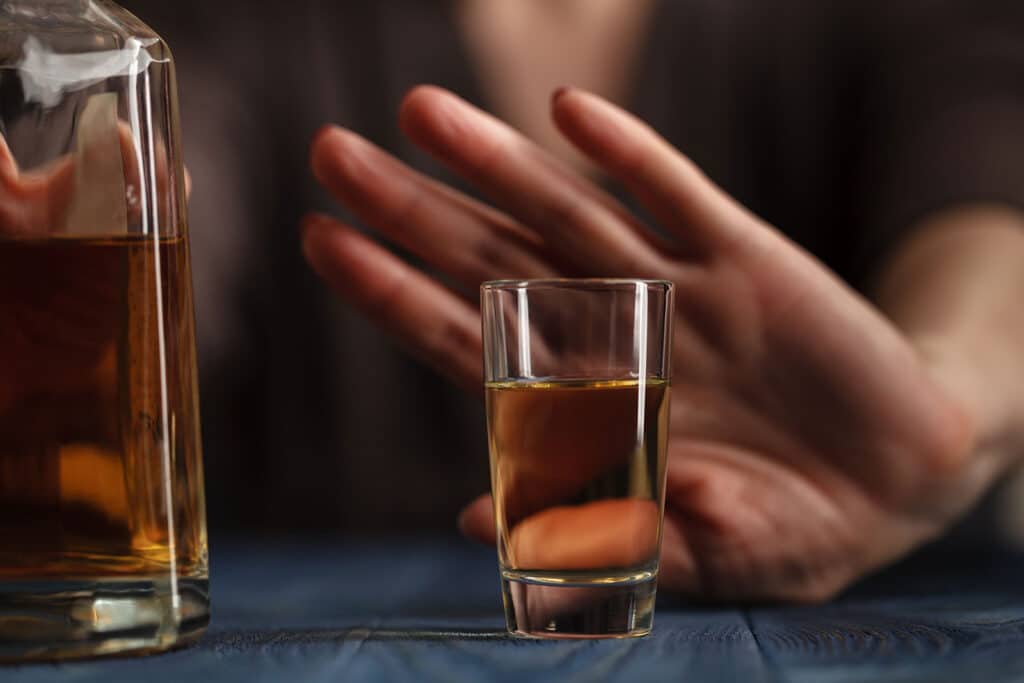For many people, overcoming an addiction is a lifelong process. It is also rarely a linear process, which means that you may need to seek help multiple times as you try to obtain and retain a sober lifestyle. In some cases, outpatient treatment options/program is a form of alcohol and drug treatment and recovery in which the patient lives at home during treatment, it can be an effective tool in your quest to overcome your alcohol, drug or other type of addiction. Let’s take a closer look at what an outpatient service is, who these programs are designed for and the different tactics used to help aid in your recovery.

Table of Contents
- 1 What is an Outpatient Treatment Program?
- 2 Is Outpatient Treatment Right For You?
- 3 You May Transition From Inpatient Care To Outpatient Care
- 4 The Types Of Programs That Might Be Available
- 5 Who Do You Desire To Be?
- 6 Why Do You Want To Get Sober?
- 7 The Importance Of Self-Care While In Recovery
- 8 Medication May Be Helpful
- 9 Temptations Aren’t A Moral Failing
- 10 Outpatient Treatment Goals at Garden State Treatment Center Wellness
What is an Outpatient Treatment Program?
As the name suggests, an outpatient program is one in which treatment occurs primarily outside of a hospital or other formal setting. Of course, this doesn’t mean that you won’t visit your doctor or won’t engage in activities that take place outside of your home. However, you won’t be under the level of care from a doctor or other mental or behavioral health professionals for hours or days at a time.
Is Outpatient Treatment Right For You?
Outpatient treatment programs may be right for you if you don’t feel as if you’ll experience harsh withdrawal symptoms or don’t need help managing them. If you are going back to your rehab center and rehab program because you recently relapsed, this may be true in your case. Generally speaking, withdrawal symptoms tend to be less severe if you haven’t used for a long period of time or haven’t used a significant amount of a substance.
Mild withdrawal symptoms may include headache, fatigue or depressed appetite for a period of 12 to 36 hours. You may also experience sore muscles, have short-term memory issues or feel anxious as you come down from a recent drug or alcohol binge.
An outpatient program may also be ideal if you simply need someone to talk to or hold you accountable during your journey to sobriety. A typical program will include individual or joint therapy sessions or allow you to connect with a sponsor who you can talk to outside of these sessions.
Finally, seeking this type of treatment may be ideal if you don’t want to risk losing your job or custody of your kids. This type of program generally allows you to schedule group counseling and meetings around your work schedule or around your responsibilities as a parent. You may also be able to receive medication or other forms of treatment when it is most convenient for you.
You May Transition From Inpatient Care To Outpatient Care
Outpatient care programs may also be appropriate for those who have recently spent time in an inpatient rehab healthcare facility. Typically, an inpatient treatment program will last for anywhere from a few days to a few weeks and is designed to help you get past immediate withdrawal and other symptoms. An partial hospitalization outpatient program may now be more effective at helping you manage cravings or otherwise help manage and overcome the challenges associated with maintaining your sobriety over a longer period of time.
The Types Of Programs That Might Be Available
There are a wide variety of outpatient therapy options available to help you maintain your sobriety over the course of many years or decades. For example, you may be interested in cognitive behavioral therapy (CBT), which is designed to help you learn how to solve problems and better understand the connection between your thoughts and your actions.
Circumstantial evidence suggests that CBT may be effective at treating both physical and mental health conditions. Therefore, it may help overcome muscle aches, neuropathy or other ailments that you might experience as you detox or as you get deeper into your sobriety journey. If you are overcoming an addiction to opioids, it may be necessary to obtain pain relief without using traditional medication. Therefore, CBT may be one of the best options to do so.
You may also consider taking part in a 12-step program. In a 12-step program, you admit that you have no control over your addiction and that you can’t overcome it without help. This type of program also requires you to acknowledge that your actions have hurt others and to make amends to those people if you can. Finally, you are encouraged to constantly reflect on your actions, acknowledge your mistakes and share your story with others.
Finally, you may want to consider taking part in therapy sessions with your spouse, parents or other loved ones and family members. This may be done either on its own or in conjunction with a 12-step or other type of recovery program. Working with your family may make it easier to see how your actions have impacted their lives as well as give them an understanding of what you’re going through and how they can help support you.
Who Do You Desire To Be?
A therapy technique called motivational interviewing (MI) allows you to speak openly and honestly about your past and what you’d like to change about yourself. It also allows you to list specific goals that you’d like to achieve in the future. Your therapist will ask a series of open-ended questions designed to help you better articulate your needs and desires so that you can turn your words into a series of actionable steps.
Your therapist will also work with you to help you see that your hopes and dreams are valid and still available to be fulfilled despite everything that has happened to you. The goal is to open your mind to the idea that you can still make something of yourself and your life despite what you might tell yourself or what others have told you about your potential or lack thereof.

Why Do You Want To Get Sober?
One of the reasons why you are encouraged to go to counseling and group therapy sessions is to discover the reasons why you became addicted to drugs, alcohol or other substances. Discovering why you became addicted in the first place might help you come up with a reason why you want to get sober again.
For example, let’s say that you started drinking because you had a poor relationship with your parents. In such a scenario, the alcohol likely helped you overcome the feeling of being rejected by someone who was supposed to provide love and support.
Eventually, you may realize that being an addict is making it difficult to be there for your own children. Therefore, you may decide to overcome your problem so that you don’t do to your own kids what your parents did for you.
Of course, you don’t need to understand to go to therapy or understand how your addiction started to want to overcome it. You could simply wake up one morning and realize that depending on drugs or alcohol is causing you to miss out on friendships, jobs or other things that you want from life.
However, understanding why you want to quit can provide you with a sense of clarity that might make it easier to accomplish your goal. It can also provide you with the motivation needed to not give in to temptation when you’re feeling weak.
The Importance Of Self-Care While In Recovery
Generally speaking, you’ll only spend a few hours a week at therapy sessions or group meetings. If you have a job, it might help you stay occupied for a few extra hours a day. However, this still leaves several hours each day when you might be tempted to use drugs or alcohol.
Furthermore, you never know when the stress of working a full-time job might trigger a craving to use again. You might also be triggered by the sight of a former friend or when you drive past the bar that you used to frequent. If you don’t have any way to cope with boredom, stress or other negative emotions, you may be more likely to relapse.
Therefore, it is important that you engage in self-care to help you get past those darker periods. For instance, you might want to consider taking yoga classes, getting regular massages or going for a run to relieve your stress. It may also be a good idea to engage in other fun activities such as watching movies, playing golf or taking a long drive on a sunny day.
Medication May Be Helpful
Medication may be used in conjunction with therapy and other forms of self-care to help you manage co-occurring disorders such as physical and mental issues that may arise while you get sober. For example, you might be prescribed suboxone or methadone to help overcome cravings or to help overcome the physical changes that your body may endure as you wean yourself from opioids.
You may also be prescribed various painkillers to help with neuropathy or other physical issues related to withdrawing from alcohol or other substances. It’s important to speak with your doctor, clinicians or another medical care professional prior to putting anything in or on your body. This may minimize the risk of even worse side effects or other adverse events that might put your health and safety in jeopardy.
It may also be helpful to familiarize yourself with the laws in your city or state before taking any type of medication. This is because it may be illegal to take certain medications at home or to use certain substances in public. For example, while you may be able to smoke marijuana at home, you generally can’t use or possess it in public. Furthermore, you may still be prohibited from growing or selling the substance even if it’s legal for medical or recreational use.
Temptations Aren’t A Moral Failing
You may feel a variety of emotions such as shame or guilt if you relapse. You may also feel shame or guilt simply for thinking about using or putting yourself in a position where you were vulnerable to relapsing. However, the truth is that you will likely always feel tempted to use your substance of choice.
This is why most people attend meetings or engage in other types of therapy for years or decades after taking their last drink or using drugs for the final time. Even if you aren’t tempted to use a controlled substance again, sharing your story with others may give them the strength to keep going during their darkest times.
Alternatively, your story may provide people with hope that there is a chance to live a clean and successful life. Therefore, instead of feeling ashamed, you should lean into being honest and transparent about what you have been through regardless of how good or bad your experiences may be.
If you are ready to start or continue your journey to sobriety, the folks at Garden State Treatment Center are ready to help. We offer a variety of services that are tailored to your current and future needs. Feel free to contact us today to learn more about our services, fee schedule and other information that you might need to feel confident about working with us.

Garden State Treatment Center Treatment Centers is proud to call the great state of New Jersey home.
Nothing gives us more satisfaction than seeing clients emerge from our facility happy, healthy, and eager to begin a life in recovery. Over the years, we’ve seen countless families healed and reunited after addiction broke those relationships apart.
While enrolled in our outpatient treatment program or Intensive outpatient programs(IOP), clients continue to live at home while receiving our high quality and compassionate care. Services involve case management, treatment planning and they report to our facility 3-4 days a week, where they participate in both individual therapy and group therapy sessions. Clients also participate in family therapy sessions and relapse prevention programs as well.
And it’s during our comprehensive outpatient drug rehab and alcohol treatment that the real transformation begins to happen. They begin to confront childhood traumas and unravel the complex reasons they began to use drugs and alcohol in the first place. As the treatment continues, clients become more and more comfortable with both themselves and the recovery process.
Our care continues after clients leave our facility. We ensure that before their treatment services ends, each and every one of our clients is connected to whatever resources they need and aftercare to maintain their sobriety. The end result is an addict or alcoholic who finds that they have been launched into a new and more rewarding dimension of their experience, one that’s healthy, full of life, and grounded in authentic recovery.
Outpatient Treatment Goals at Garden State Treatment Center Wellness
Broadly speaking, outpatient treatment at Garden State Treatment Center has three interconnected goals. The first goal, which we achieve during the intake process, is to help clients stop drug abuse and alcohol safely. Addicts and alcoholics can only begin to recover once they’re physically stable.
The second goal is to administer a variety of therapies that, taken together, will start to remove some of psychological obstacles to recovery that our clients present. The third goal, which requires emotional as well as physical stability, is to connect clients to support groups and other long term sobriety resources.
Although there is ample room for flexibility within our treatment model, we have found that by pursuing these three goals vigorously, we give our clients the best chance to build a foundation for long term recovery. Giving our clients this chance is our solemn and welcome duty.
FAQ
Inpatient vs Outpatient mental health programs?



